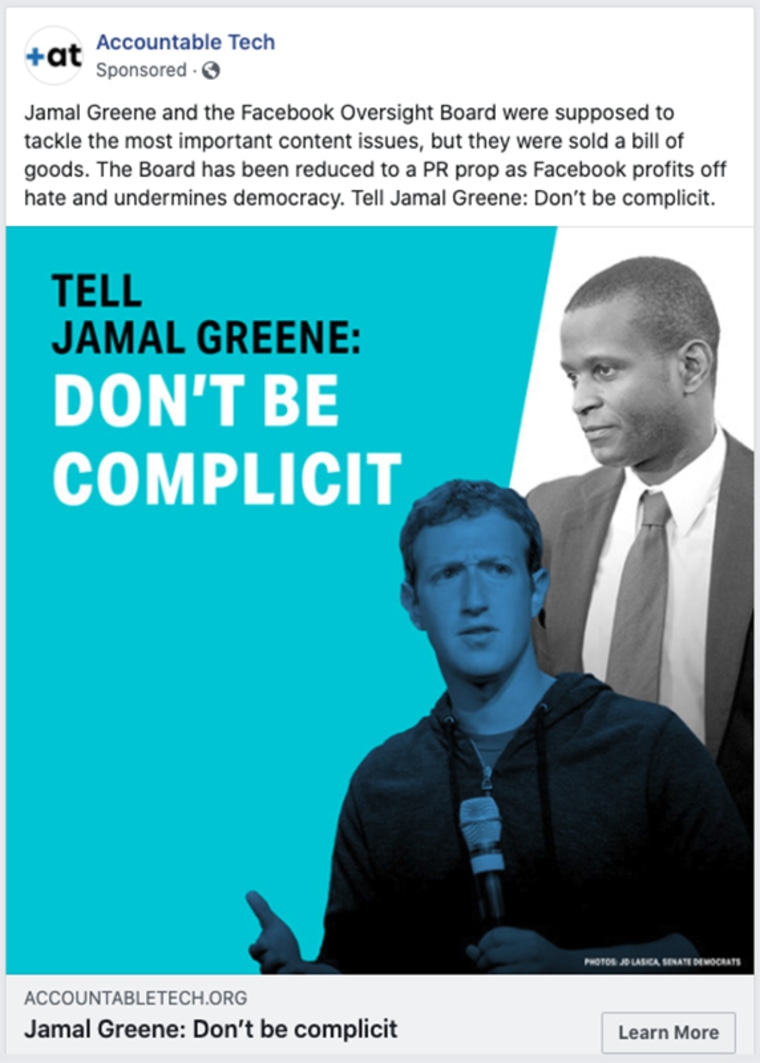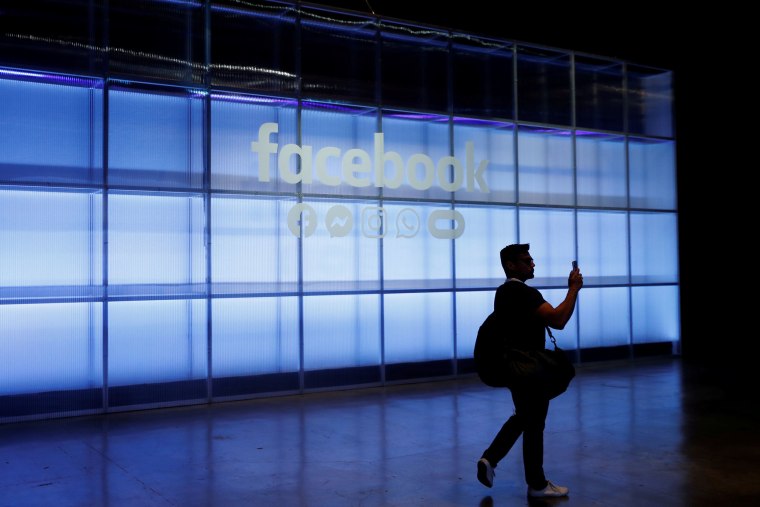Facebook's content oversight board hasn't met yet, but it's already the focus of calls to "speak up" or "step down."
Accountable Tech, a progressive nonprofit, launched a campaign Tuesday to persuade the members of Facebook's independent oversight board to demand more authority over content decisions. It is several months before the board will start reviewing cases.
The campaign comes amid growing internal dissent among employees over Facebook's handling of hate speech and political disinformation, including a post by President Donald Trump that stated "when the looting starts, the shooting starts."
"Facebook is overrun by voting misinformation and hate," said Accountable Tech co-founder Jesse Lehrich, who was the foreign policy spokesman for Hillary Clinton's presidential campaign. "It's incumbent on the board to demand they have legitimate authority to tackle these issues or they should quit."
Lehrich co-founded Accountable Tech with Nicole Gill, a political campaigner who founded the 2017 Tax March.
The campaign argues that the launch of the oversight board has been delayed and that its scope has been restricted since Facebook CEO Mark Zuckerberg first floated the idea for a "supreme court" for content moderation decisions in April 2018, the same month he testified to Congress about Facebook’s data sharing practices and Russian election interference.
At the time, Zuckerberg described a group of "independent folks" who would make a "final judgment call" on "what should be acceptable speech" on the platform. In November 2018, Zuckerberg said the company would create the oversight board "in the next year," and in June 2019 he said it would launch by the end of 2019. The first members were eventually announced in May 2020 , but the board won't be operational until "late fall."
A spokeswoman for the board said that the delay was "pretty old news" and that "the timetable we are on today has been the same throughout 2020."
When the board starts making determinations, they will be initially restricted to content that has been removed from the platform rather than content that has been reported, reviewed and left up on the site, according to the board's bylaws, published in January. That means members of the public won't be able to report posts like Trump's, although a spokeswoman for the board said Facebook employees will be able to refer that type of case to the board. The bylaws also grant the board a 90-day window to make decisions.
"They've managed to drag this thing out in such a way and written the bylaws in such a way that the board is going to be totally unable to have any impact before the 2020 election, if at all," Lehrich said.
The spokeswoman said that although the board would initially be restricted to making judgments about content that has been removed, "over the following months we will add the opportunity to review appeals from users who want Facebook to remove content."
"When the board begins considering cases over the coming months, we will focus on the most challenging content issues on Facebook and Instagram and act without consideration of the company's economic, political or reputational interests," said the spokeswoman for the board.

Accountable Tech said it was spending $25,000 on ads across Facebook and LinkedIn to target U.S.-based board members and their networks, including Jamal Greene, a professor at Columbia Law School; Michael McConnell, a constitutional law professor at Stanford Law School; Evelyn Aswad, a law professor at the University of Oklahoma College of Law; Pamela Karlan, a Stanford Law professor; and John Samples, vice president of the Cato Institute. The campaign will also buy Google ads targeting keyword searches about the board.
Advertisements reviewed by NBC News show messages including "Tell Jamal Greene: Don't be complicit" and "Pam Karlan: Speak up or step down from the oversight board."
The advertisement targeting McConnell calls for him to step down because of his recent reading of the n-word during class: "Is this who should decide what constitutes acceptable speech? Michael McConnell has to go," the ad states.
"The goal isn't to make personal attacks on board members. We have nothing but respect for several of these board members, but if they are going to be used as PR props, they should not want to be used as cover for Facebook to keep selling disinformation and hate," Lehrich said.

